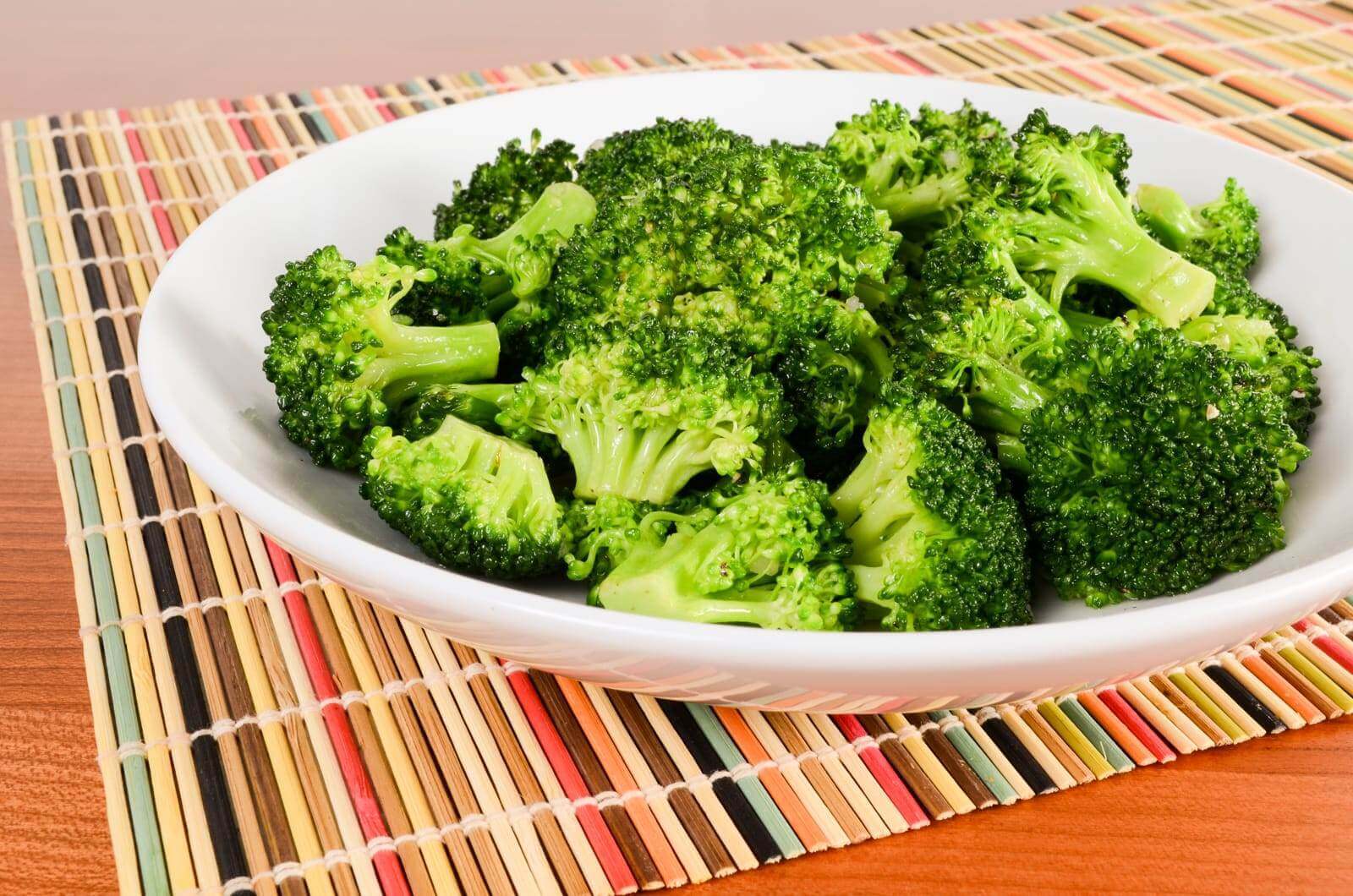- Thriving Guide
- Posts
- What Eating Broccoli Every Day Does to Your Body
What Eating Broccoli Every Day Does to Your Body
This cruciferous powerhouse may do more than support digestion it could help your heart, bones, and even your skin.

Broccoli often gets labeled as a diet staple or a boring side dish, but eating it every day could quietly transform your health in meaningful ways. Rich in nutrients and low in calories, broccoli is more than just a green on your plate it’s a nutritional overachiever that supports your body from the inside out.
Let’s take a closer look at what happens when you eat broccoli daily and why it deserves a top spot on your grocery list.
Reduces Inflammation and Oxidative Stress
Broccoli is loaded with antioxidants like sulforaphane and vitamin C, which help fight cellular damage and inflammation two key contributors to aging and chronic disease.
A diet rich in antioxidant-packed vegetables like broccoli has been associated with a decreased risk of certain cancers, including colorectal and lung cancer.
Sulforaphane, a compound found in broccoli, may also activate enzymes that protect against environmental toxins.
Strengthens Heart Health
Thanks to its anti-inflammatory effects and fiber content, broccoli supports cardiovascular function.
Cruciferous vegetables are linked to a 15% lower risk of heart disease, according to a 2020 study in the British Journal of Nutrition.
Potassium in broccoli helps regulate blood pressure, while fiber can aid in reducing LDL (bad) cholesterol levels.
Supports Bone Density
Broccoli is a quiet but effective ally in maintaining strong bones. It delivers a one-two punch of calcium and vitamin K two essential nutrients for bone health.
Just one cup of broccoli provides nearly 100% of your daily vitamin K needs.
Vitamin K improves calcium absorption, helping to reduce your risk of fractures and osteoporosis.
Aids Digestive Health
Fiber is key to keeping your digestive system humming, and broccoli is a great source.
Its insoluble fiber helps regulate bowel movements and may protect against colon cancer.
A cup of broccoli delivers about 2 grams of fiber, helping you stay regular and satisfied.
Helps Regulate Blood Sugar
Daily broccoli intake may be beneficial for people watching their blood sugar levels.
In one clinical trial, people with type 2 diabetes who took broccoli sprout extract daily experienced a 10% drop in fasting blood sugar.
Broccoli’s high fiber content also helps prevent rapid spikes in blood glucose.
Supports Brain and Cognitive Function
Green vegetables like broccoli contain compounds that may help preserve memory and cognitive sharpness as we age.
Lutein and sulforaphane, found in broccoli, have been linked to improved cognitive performance in older adults.
A diet rich in cruciferous vegetables has been shown to slow age-related mental decline.
Promotes Oral and Dental Health
Broccoli’s calcium and vitamin C content also benefit your smile.
These nutrients support gum health and may lower the risk of periodontal disease.
Broccoli's bioactive compounds have even shown potential in reducing the risk of oral cancers.
Fuels a Healthy Pregnancy
Expecting? Broccoli can help you meet your folate needs, crucial for fetal brain and spine development.
One cup contains nearly 50 mcg of folate, about 12% of the daily recommended intake during pregnancy.
Adequate folate may lower the risk of neural tube defects and promote healthy cell growth.
Improves Skin Appearance
Broccoli might just be your skin’s new best friend. Its high vitamin C content aids collagen production, which keeps skin firm and elastic.
Collagen supports wound healing and reduces the appearance of wrinkles.
Antioxidants in broccoli also help fight skin damage from sun exposure and pollution.
Raw vs. Cooked: What’s the Best Way to Eat Broccoli?
How you prepare broccoli matters. While it’s safe and healthy cooked, certain methods retain more nutrients than others.
Steaming is best for preserving vitamin C, folate, and sulforaphane.
Boiling tends to leach out water-soluble vitamins, reducing its nutritional impact.
Light roasting or sautéing can offer a tasty compromise while still retaining many nutrients.
Nutritional Snapshot (Per 1 Cup Raw Broccoli):
Calories: 24
Protein: 2 g
Fiber: 2 g
Calcium: 35 mg
Vitamin C: 40 mg (44% DV)
Folate: 49 mcg
Vitamin K: 78 mcg (65% DV)
Potassium: 230 mg
Cautions to Keep in Mind
Although broccoli is healthy for most people, some may need to limit it:
Blood thinners: High vitamin K can interfere with medications like warfarin.
Thyroid issues: Large amounts of raw cruciferous vegetables may affect thyroid function.
Allergies: Rare, but possible.
Broccoli might not wear a cape, but this everyday veggie quietly supports nearly every system in your body. Whether you steam it, blend it into soups, or toss it into a stir-fry, it’s one of the most versatile ways to nourish yourself daily.
If you found this helpful, consider subscribing to our newsletter or sharing this with someone who could use more greens in their life.